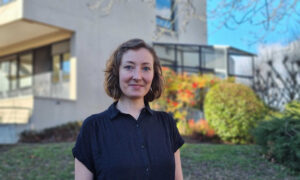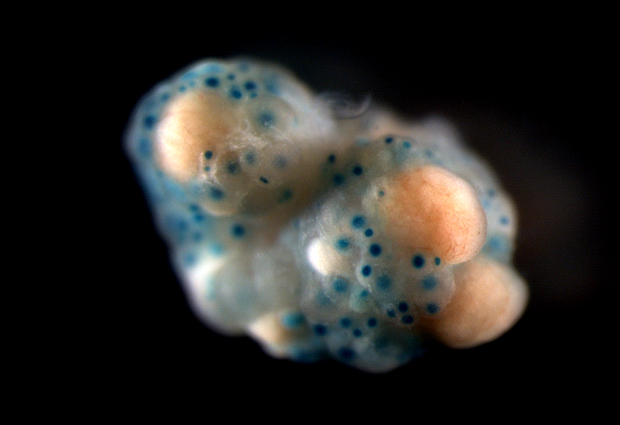
Read the latest Issue
New EMBL group leader investigates the mystery of heritable gene silencing


New EMBL group leader Matthieu Boulard will work with his team in the Epigenetics and Neurobiology Unit to explore how stable gene silencing works. The central question that drives his research is why the addition of methyl groups to DNA prevents genes from being expressed. Boulard sees success as requiring a crucial mixture of creativity, good timing, and a high degree of tolerance to failure.
We are interested in strange phenomena that cannot be explained by genetic laws. The dogma of genetics that says our genes define our characteristics does have exceptions. For example, identical twins – who have identical genomes – can have differing health conditions, such as congenital disorders that affect only one twin. Such discrepancies that cannot be attributed to genetic differences are called epigenetic.
My lab tries to understand why the genetic code can be interpreted differently by different cells or individuals. Our research focuses on one particular epigenetic cue called DNA methylation, which is a tiny chemical modification of the DNA that doesn’t change the genetic code but permanently represses genes. We try to understand how this biological system functions at the molecular level. Deciphering this mysterious pathway has broad medical implications. For instance, could this improve the understanding of how cancer cells hijack the genetic code.
It’s really incredible the different types of expertise that are available at EMBL. I’m part of the Epigenetics and Neurobiology Unit at EMBL Rome, so I hope to collaborate with the different research groups here, including labs interested in completely disparate questions. I’d like to collaborate with the Lancrin Lab, which looks into how a certain kind of stem cells – particularly, the ones that can form different types of blood cells – develops into, say, a T cell rather than a platelet. It would be great to discover the epigenetic signals that guide the fate of these cells as they differentiate. I’d also love to collaborate with the Gross Lab to investigate whether fearful experiences are epigenetically recorded in the brain. And of course, the best discoveries come from unexpected meetings, so I’m sure there will be many fruitful collaborations that I don’t know about yet – both within and far beyond EMBL.
It’s important sometimes to try something that’s a little bit crazy – something that shouldn’t work. You can’t do this all the time but I think it’s important to allow some craziness in this sense – to not always be reasonable.
One glorious example is the discovery of the first human gene that controls the cell cycle. Melanie Lee and Paul Nurse proved the existence of such a gene by restoring function to a non-functioning yeast strain by using human DNA. They were bold to do this without any evidence that a gene could have the same function in yeast and humans, two species that have been diverging for more than a billion years.
I try to be creative and encourage imaginative initiatives in my lab. As is the case for musicians and painters, if you want to move your field to a new direction, you have to propose something new to your peers. Whether or not they then accept it is a different question! The reality is that it’s difficult to achieve something without experiencing failure. But in the real world we have to succeed at some point. One of the important and difficult challenges I face is to judge the amount of failure that is acceptable before I switch my focus or change my approach.
Looking for past print editions of EMBLetc.? Browse our archive, going back 20 years.
EMBLetc. archive